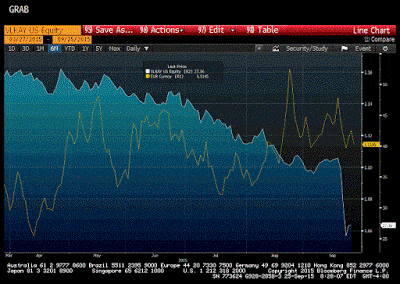Short Currency Exposures are Trimmed (Except the Euro and Pound)
Speculators in the currency futures made mostly small adjustments to their gross foreign currency exposure. There were only three position adjustments of more than 5k contacts.
Since the markets turned on 11 February, the Canadian dollar has been the strongest of the major currencies, appreciating a little more than 4.5% against the US dollar. Gross shorts have been nearly halved since then. They were cut by 6.9k contracts or about 10% to reach 61.5k contracts during the recent reporting period.




